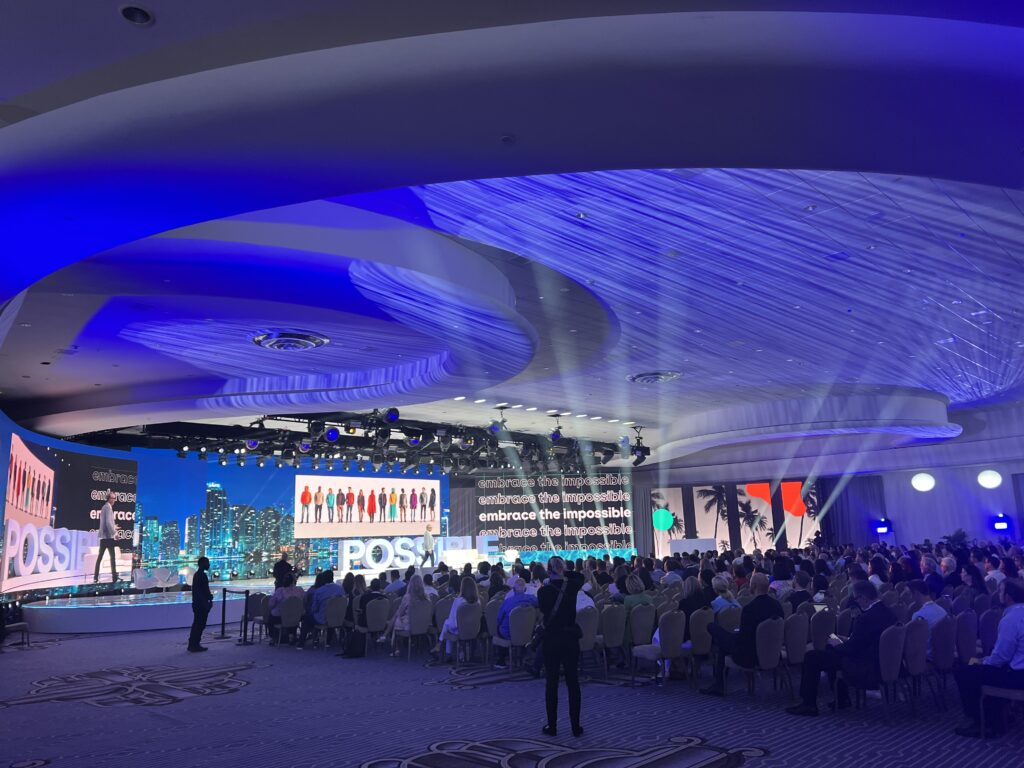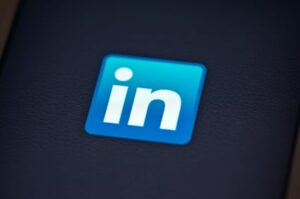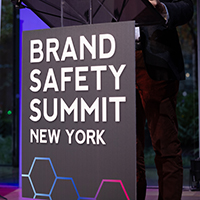It’s been a newsworthy week for the controversial CEO of Twitter. And that’s not counting his SpaceX Starship rocket exploding mid-launch.
Twitter announced a new content moderation policy on Monday, April 17, dubbed “Freedom of Speech, Not Freedom of Reach,” which aims to restrict the visibility of tweets that violate its rules against “hateful conduct.” The following day, billionaire owner Elon Musk talked up Twitter’s recent efforts to promote transparency to a crowd of advertisers, marketers and media folks—this editor included—at MMA Global’s inaugural POSSIBLE conference in Miami.
Though extremely attentive to the CEO’s remarks, we’re not convinced all in the crowd were receptive—despite outbursts of cheers from some in attendance. Many advertisers fled the platform after Musk took over the company in October and began making moves that prioritize his views on free speech—“the bedrock of democracy,” in his words—over content moderation, from reinstating formerly banned users to a new paid verification service for accounts with blue check marks.
The new enforcement policy, according to Musk, will make tweets that potentially violate its rules less discoverable on the platform. “If somebody has something hateful to say, it doesn’t mean you should give them a megaphone. They should still be able to say it, but it needs to be not then pushed on people,” he said. “So, if somebody wants to say something that’s technically legal, but that is by most definitions hateful, we’re not going to promote that. We’re not going to recommend hateful content to people. We’ll put it behind a warning label.”
But will advertisers consider the platform safe enough to reinvest? Moderator Linda Yaccarino, Chairman, Global Advertising and Partnerships at NBCUniversal, summed up advertisers’ concerns with this: “Have you de-risked the opportunity or chance of their campaigns landing in these awful hateful places?”
Musk responded that Twitter is indeed taking action to allow brands control where their ads show up. “People may not be aware of this already, but we have adjacency controls in place that are really quite effective… Ads will not appear next to anything remotely negative.” He added, though, that campaigns launched without using adjacency controls do not mitigate that risk. “That should never be done,” he said. “You must put controls in place, because we have excess inventory on negativity.”
Trust and Transparency
When it comes to implementing warning labels that accompany tweets that possibly violate Twitter’s Hateful Content policy, Musk said he has open-sourced a list of words associated with such content, as well as the recommendation algorithm and the Community Notes algorithm. The latter function—formerly known as the Birdwatch program—allows Twitter users to add context to “potentially misleading tweets” by leaving notes that are then evaluated and rated by Birdwatch contributors.
“I think in order to really build trust you have to have transparency,” Musk said. “If you want to trust something, you’ve got to know how it works. And so that’s why we open-sourced the algorithm, and we actually fixed I think over a hundred issues with the algorithm. So it’s actually very helpful to open-source it.” When asked whether his own tweets are subject to Community Notes, Musk said that they are—and that he’s been corrected before as well.
The Feedback Loop
Musk also shared his long-term vision for Twitter, which is “to have a platform that is so useful that you find it is essential.” That means providing a “meaningful communication pathway,” with voice and video calls, encrypted and public communications, and payment capabilities.
But in addition to having concerns regarding the protection of their ad campaigns, advertising experts are also looking for more of an open feedback loop of communication with Musk, Yaccarino argued, “to help develop Twitter into a place where they will be excited about investing more money, product development, content moderation.”
If Twitter becomes an open-sourced conversation, in which users can conduct their lives, their business and their commerce, that’s a huge advertising opportunity for Twitter and for brands, Yaccarino said. “But they need to feel that there is an opportunity for them to influence what you’re building—that vision, what we’re doing here,” she added.
Yaccarino pointed to the beloved former Influence Council from Twitter 1.0, which allowed key stakeholders to have recurring access to Musk. However, the CEO seemed unwilling to reinstate the Council. Pointing again to protecting “the true voice of the people,” he responded that he worried such a move could create “a backlash among the public… There’s legitimate concerns that advertisers have that I want to hear. I think these things should be discussed in an open forum.”






 Network
Network

